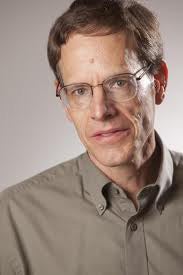University of Oregon Professor Robert Ribe recently coauthored an article in the prestigious Proceedings of the National Academy of Sciences. The article focuses on how cultural and aesthetic experiences factor in when applying ecosystem services to policy- and decision-analysis. The global Millennium Ecosystem Assessment advocated this method of decision-making, which has been adopted by the European Union, Australia, the U.S. Environmental Protection Agency, and other governments and organizations.
 The aim of ecosystem services assessments is to give natural and cultural systems their full economic weight of value in delivering vital services as compared to market valued, fabricated productive assets. Thus far the ecosystem service value of ecological, climate, hydrologic, and other systems has only included products and services measured by the natural sciences.
The aim of ecosystem services assessments is to give natural and cultural systems their full economic weight of value in delivering vital services as compared to market valued, fabricated productive assets. Thus far the ecosystem service value of ecological, climate, hydrologic, and other systems has only included products and services measured by the natural sciences.
Ribe and his coauthors argue for the measured inclusion of the value of cultural ecosystem services. These include the capacity of wildland, rural, and urban landscapes to provide pleasant, therapeutic, spiritual, and culturally enriching aesthetic experiences. They also include how people’s interactions with these landscapes can support individual and collective behaviors that sustain other ecosystem services, and which nurture and maintain cultural value systems that synergize well with natural systems.
Ribe is director of master’s studies in the Department of Landscape Architecture in the School of Architecture and Allied Arts at UO. He has served as director of the UO Institute for a Sustainable Environment for ten years, and is a participating faculty member in the community and regional planning and environmental studies programs. He offers courses in landscape analysis, landscape planning, research methods, digital media, and design studios, and specializes in public perceptions of forests and their management.
Ribe received his bachelor’s degree in geography and urban planning from the University of California Riverside, master’s degrees in landscape architecture and economics from the University of Wisconsin Madison, and a PhD in land resources from the Gaylord Nelson Institute of Environmental Studies at the University of Wisconsin Madison.
